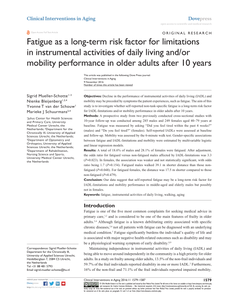Current leisure mobility patterns are not sustainable. Because energy efficiency measures appear insufficient to accommodate predicted future volume growth, changes in transportation modes and volume are needed. Short-haul should be the preferred distance, public transportation the preferred mode and length of stay should increase rather than trip frequency. However, tourists are unwilling to adopt these changes. This paper proposes a new conceptual "three-gear model" demonstrating how happiness, travel motivations and perception of distance set barriers for desirable behavioral change. The model improves understanding of the gap between awareness of, and attitudes to, tourism mobility and the gap between environmentally friendly everyday behaviors and unsustainable vacation behaviors. The paper shows that happiness is integral to all stages of the tourist experience. Understanding happiness enhances the understanding of tourist behavior, and how it drives, via the speed-distance-demand loop, the three-stage model presented here. Key practical implications include the need for effective policies to break the speed-distance-demand loop, changes to transport infrastructure policies, and recognition of the role of happiness in sustainable tourism strategies. Theoretical contributions include a synthesis of theories to interrogate key behavioral gaps and a theoretical basis for future empirical studies.
LINK
DOCUMENT
Objectives: Decline in the performance of instrumental activities of daily living (IADL) and mobility may be preceded by symptoms the patient experiences, such as fatigue. The aim of this study is to investigate whether self-reported non-task-specific fatigue is a long-term risk factor for IADL-limitations and/or mobility performance in older adults after 10 years. Methods: A prospective study from two previously conducted cross-sectional studies with 10-year follow-up was conducted among 285 males and 249 females aged 40–79 years at baseline. Fatigue was measured by asking “Did you feel tired within the past 4 weeks?” (males) and “Do you feel tired?” (females). Self-reported IADLs were assessed at baseline and follow-up. Mobility was assessed by the 6-minute walk test. Gender-specific associations between fatigue and IADL-limitations and mobility were estimated by multivariable logistic and linear regression models. Results: A total of 18.6% of males and 28.1% of females were fatigued. After adjustment, the odds ratio for fatigued versus non-fatigued males affected by IADL-limitations was 3.3 (P=0.023). In females, the association was weaker and not statistically significant, with odds ratio being 1.7 (P=0.154). Fatigued males walked 39.1 m shorter distance than those non-fatigued (P=0.048). For fatigued females, the distance was 17.5 m shorter compared to those non-fatigued (P=0.479). Conclusion: Our data suggest that self-reported fatigue may be a long-term risk factor for IADL-limitations and mobility performance in middle-aged and elderly males but possibly not in females.
DOCUMENT

DOCUMENT
DOCUMENT
DOCUMENT
DOCUMENT
DOCUMENT
In this report the philosophy of the Conscious Destination is discussed. Also the bounderies of the hospitality domain and the core themes (as defined by CELTH) of Conscious Destinations will be described. These themes are: “Living environment”, “Human capital”, “Organising Capacity”, “Smartness” and “Leisure offer”.
DOCUMENT

Dit project draagt bij aan het versterken van “de kennisketen van de Drentse vrijetijdseconomie”. De kennisketen wordt onder meer gevormd door kennisinstellingen, brancheverenigingen, overheden, bancaire instellingen, ondernemers en loopt van vergaren en verzamelen van data en kennis tot het ontsluiten ervan naar gebruikers. Het project beoogd de volgende doelen: Inventarisatie van het data-aanbod in Drenthe bij diverse partijen Inventarisatie van hoe partijen in het domein VTE de data-behoefte prioriteren. Input leveren voor de verdere uitbouw van de kennisketen in de context van Leisure Valley Drenthe.
DOCUMENT
